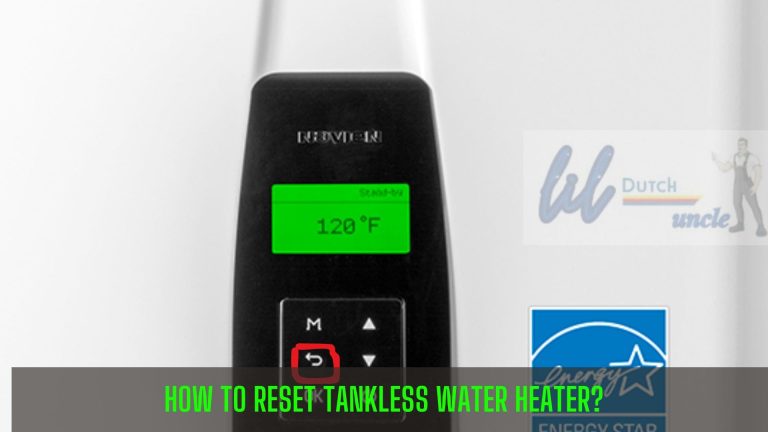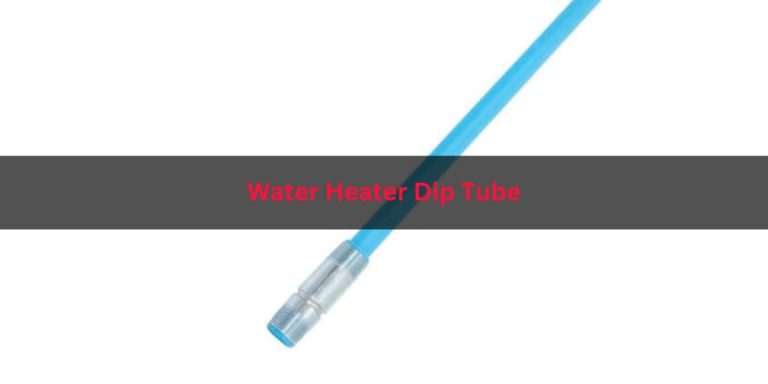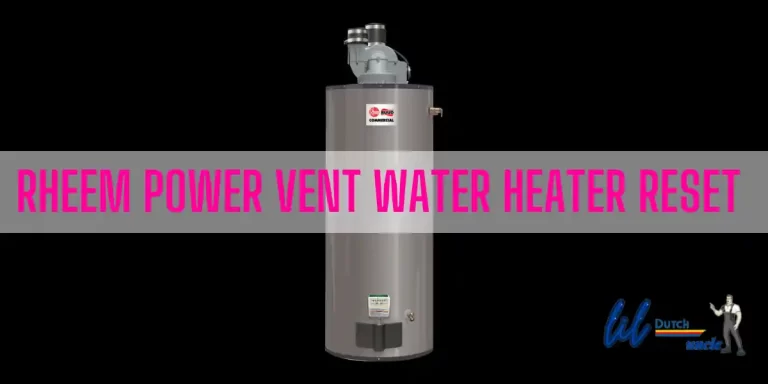It has been 4 years or so and you haven’t descaled your tankless hot water heater yet. So, hot water smells faintly sulfuric or like a butt. To get rid of this issue, you now want to flush your water heater with vinegar to descale it. But some people suggest you to not use vinegar which pops this question out in your mind: Will vinegar damage a hot water heater?
Fortunately, vinegar doesn’t bring any damage to your hot water heater under normal circumstances. Instead, it reacts with the mineral or calcium buildups at the bottom of the hot water heater and dissolves them. Below, we will break down whether vinegar damages the heater unit or not. Also, we will show you how to descale a hot water heater with vinegar. So, stay in tune with us till the end.
Table of Contents
- Will Vinegar Damage A Hot Water Heater?
- Can I Put Vinegar In My Hot Water Heater?
- How To Clean A Hot Water Heater With Vinegar?
- FAQs
- End-Notes
Will Vinegar Damage A Hot Water Heater?
Vinegar is a homemade cleaner. It contains no harmful chemicals that will react with your hot water heater and stain it. As the water heater uses stainless steel as its construction material, you can safely use vinegar to remove sediment buildup from the bottom of the heater.
However, we recommend you to not let the bottom of the water heater soak in the vinegar solution for an extended time. Otherwise, long term vinegar exposure may significantly damage the stainless steel surface of your water heater. Also, make sure you rinse the water heater evenly once you clean the heater with vinegar. It will ensure there is no leftover residue on the bottom of the water heater from vinegar.
In short, vinegar brings no damage to your hot water heater as it doesn’t contain any harmful chemicals like the commercial cleaner. Just make sure you rinse the surface of your water heater thoroughly after cleaning it with vinegar.
Can I Put Vinegar In My Hot Water Heater?
Yes, you can put vinegar in your hot water heater as it contains no harsh chemicals. When you put the vinegar in the heater, the acid in the vinegar will react with the scale buildups and remove the scale in the process.
Now, you may ask- how could vinegar be safe when it’s acidic? We found that vinegar has no effects on stainless steel. In other words, it doesn’t rust the stainless steel or cause any leaks. However, if you are in confusion, we suggest you to not expose the heater to vinegar for too long. Plus, rinse the bottom of the heater evenly with clean water.
To sum up, you can put vinegar in the hot water heater to clean it safely if you use the vinegar correctly. Below, we break down how to use vinegar correctly to clean a hot water heater.
How To Clean A Hot Water Heater With Vinegar?
This chapter will break down how to disinfect a hot water heater with vinegar following 6 simple methods.
01. Equipment You Need:
First off, make sure you have the following equipment at your fingertips:
- Three gallons of regular household vinegar
- A couple of hoses (regular washing machine hoses)
- A submersible pump
- A 5-gallon bucket
Once you have these pieces of equipment, you are good to go to the next step.
02. Turn Off Your Water Heater
Now, go to your tankless water heater unit and press the on/off button to turn the heater off. Besides, make sure you turn the gas off. To do this, locate the valve very close to the water heater and set it to off position.
03. Cleaning the Valves
Next, you need to spill a little bit of water. In this case, put a 5-gallon bucket right underneath your hot water heater. Now, take a look underneath the tankless unit because you need to have a set of valves to adjust.
You can find three valves- blue, red, and yellow. These control the water that goes into the hot water heater and out. What you need to do now is- turn each of the valves to the close position. Afterward, stop the flow of water going in and out of the hot water heater.
And then, remove the protective caps on the end of the flushing valves. Now, open up the valves slowly on the top of each one of those manifolds.
Start with the blue valve and you can find a little bit of water coming out. But when you open the red valve, you can see a lot more water pour out. Wait until all the water drains out.
04. Clean the Pre-filter
In this stage, you need to rinse the pre filter because the tankless water heater has a small screen designed to protect it if anything got into the pipes. Fortunately, most water heaters have a pre-filter outside of the heater itself. So, locate it and unscrew it by using a small pair of channel locks.
There may be a lot of build ups if you don’t clean the pre-filter for years. This can cause low water flow. So, make sure you clean the dirt buildups on the pre filter by using a toothbrush.
Then, rethread the filter screen right back into its position.
05. Start Flushing & Cleaning Your Hot Water Heater
Get those washing machine hoses and thread one end of each to each one of those ports on the flush valve. Next, grab your submersible pump and connect the end of the blue hose to the top of the pump.
Keep in mind; the pump will pump the fluid up into the hot water heater system. And the red hose is the return line. Just hang the red hose into the bucket.
Now, grab and put the submersible pump directly into the bottom of the bucket. Pour the three gallons of vinegar into the bucket. Once you do all of these, it’s time to plug the pump and turn it on.
The submersible pump will pump the vinegar into the hot water heater through the blue hose and the vinegar will come back into the bucket by the red hose.
What’s happening is- inside the hot water heater is that vinegar will eat up any kind of mineral buildup, calcium, or other deposits inside the heat exchanger. We recommend you to keep your eye on the bucket to make sure nothing spills out.
You need to leave the pump running for up to 45-60 minutes. After running the pump for an hour, the clean solution will turn into nasty.
06. Finishing Up
Finally, it’s time to finish the cleaning workflow once you remove nasty buildups from the inside of the water heater. So, unplug the pump and close the red and the blue valves on top of the manifold.
Afterward, remove the hoses and put the protective caps back into their places. Now, remove the submersible pump from the bucket and dump the solution outside.
Completing the job is a piece of cake. Just go to any faucet in the house or a bathtub and turn on the hot water position. Of course, you are not going to have any hot water coming out because the water valves on the unit are still in the off position. So, go ahead and turn both of those valves back to their original position.
This will also flush out a little bit of vinegar that was still inside the hot water tank. Finally, turn the gas valve back to the on position and turn the power back on your tankless hot water system.
It’s normal to have some air in the pipes once you turn your water back on and this will be gone within a few minutes.
Now, your hot water is clean and it’s ready to work for you another year
FAQs
What kind of vinegar to flush tankless water heater?
You can use undiluted white vinegar to flush your tankless water heater. We never recommend you to try out any chemical cleaner to clean the water heater. Apart from white vinegar, you can also use household cider vinegar to disinfect your hot water heater.
Will vinegar dissolve water heater sediment?
Yes, vinegar will dissolve water heater sediment. Just pour the solution of water and vinegar into the tankless water heater and leave it for 24 hours. The acid contained in the vinegar will eat away the sediment buildup inside the water heater. Finally, flush the heater with clean water to remove the sediment deposits.
How do you remove calcium deposits from a hot water heater?
Vinegar is an effective household cleaner you can rely on to remove calcium deposits from a hot water heater. Just pour the cleaning mixture of vinegar and water into the water heater and leave it for a few hours. The acidic feature of vinegar will react with the calcium buildups and dissolve them in the process. Lastly, wash away your hot water.
Can I put CLR in my hot water heater?
Yes, you can put CLR in your hot water heater. This cleaner reacts with the mineral or calcium deposits at the bottom of the heater and eats them away. And the best part is- you don’t need to scrub the bottom of your water heater if you put CLR.
End-Notes
Vinegar, without any doubt, is the best household cleaner to clean your kitchen, floor, and even your hot water heater. As it contains acid, many people ask this question: Will vinegar damage a hot water heater?
No, vinegar doesn’t bring any damage or break anything on your hot water heater. And most water heaters use stainless steel as their construction material. So, you will be on the safe side if you use vinegar to remove sediment buildups.

Eric Alvarez is the head of content on LilDutchUncle.Com. He is an HVAC guy based in El Paso, Texas, United States. He obtained his Bachelor of Science degree from the University Of Texas at El Paso. Years of experience in the HVAC field have taught him many lessons, not the least of which is that the value of quality and knowledge far exceeds any promised initial savings. He has a good standing reputation for superior skills in heating, air conditioning, hot water tanks, and indoor air quality systems.





![Types of Water Heater [Complete Guide]](https://lildutchuncle.com/wp-content/uploads/2023/10/Types-of-Water-Heater-Complete-Guide-768x384.webp)